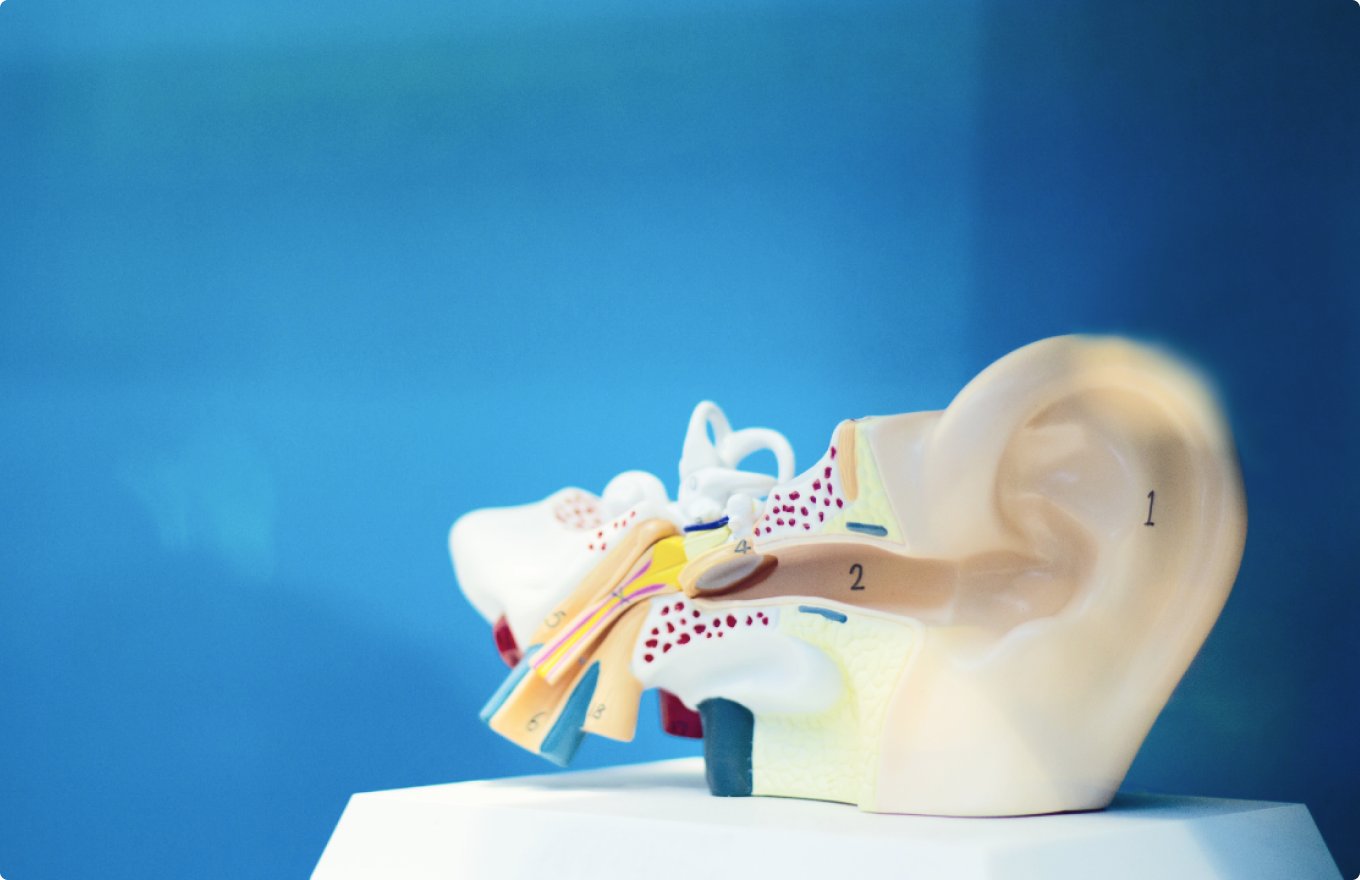Your inner ear talks to your brain to control your spatial awareness, balance, and hearing through your vestibulocochlear nerve. In a normal vestibular system, your nerves send signals to your brain at the same rate when you’re looking forward to tell your brain, if your eyes are open or closed, you’re looking forwards. When you look to the right, your right vestibulocochlear nerve fires more than the left, and when you look left the opposite happens. This is why, when your eyes are open or closed, you always know where your head is facing. However, if you have a vestibular neuritis, you have swelling, typically caused by a viral infection, in your vestibulocochlear nerve.
A vestibular neuritis in your right vestibulocochlear nerve causes a decreased firing response at baseline in your right side, which makes it seem like you have an increased firing rate in your left ear. This makes your brain think you’re looking, or spinning, to the left. But, you know that you are not doing that; you can override this system and realize “no, I’m looking straight.” This ability to discriminate between what your brain thinks is happening and what is actually happening is really important. But, if you have a vestibular neuritis, your brain is struggling to pair these two things together. This internal confusion can last weeks to months when untreated, although it slowly improves a little bit, until you plateau at baseline lightheadedness, over time. Vestibular Rehabilitation Therapy is the best way to care for yourself post-virus, and will help get you over the plateau of your symptom improvement.
Symptoms & Diagnosis
Neuritis symptoms can vary in severity and presentation. The types can be split into two groups: acute and chronic. Acute symptoms last for the first 1-3 days, and are often so severe it can limit your ability to sit or stand upright, and to walk around. Chronic symptoms remain after the acute symptoms dissipate but can cause general nausea, fatigue, and confusion. The symptoms that are related to acute vestibular neuritis are: (1)
- Severe vertiginous dizziness
- Nausea
- Vomiting
- Imbalance
These symptoms will peak within 24 hours and then slowly begin to dissipate over the next few days. When your symptoms relax, you are left with a new set of symptoms: (1)
- Lightheadedness
- General dizziness
- Imbalance
- Feeling of being pulled one way or the other
- Difficulty with quick head movements
- Fatigue
- Grogginess
- Difficulty with concentration
- Feeling like your head is a hot air balloon
The remaining symptoms from your neuritis will slowly improve, but improvements often plateau at one point, leaving you feeling lightheaded and off balance constantly. These symptoms can be difficult to describe to friends, family, and providers, and may cause frustration because although you look healthy, you don’t feel like yourself. These confusing and hard-to-describe symptoms can help your provider get to the diagnosis of vestibular neuritis. There are no specific diagnostic criteria for vestibular neuritis, but there are a few diagnostic tests that can help your provider come to a conclusion.
There are a few diagnostic tests for vestibular neuritis. These include:
- M-CTSIB, a balance test
- Head Impulse Test (or Head Thrust Test)
- Vestibular Evoked Myogenic Potential (VEMP)
- Dynamic Visual Acuity Test
- Head Shaking Nystagmus Test
- Spontaneous Nystagmus Test
- Videonystagmography with Caloric Testing (VNG)
These tests should all be considered and evaluated carefully when making a diagnosis of vestibular neuritis. Your clinician should be able to perform all of these in the clinic easily without access to any high tech equipment, with the exception of the VNG and VEMP tests. When your physical therapist or other practitioner takes a thorough subjective history and carefully considers the objective test results, he or she will be able to conclusively diagnose you with signs and symptoms consistent with vestibular neuritis.
Treatment
Proper treatment for vestibular neuritis completely depends on what stage of the neuritis you are currently in. An acute neuritis is treated completely differently than lingering and chronic symptoms of vestibular neuritis.
If it is caught early, within the first 24 hours, your physician can prescribe a steroid. A steroid prescribed and taken within this time period significantly impacts your long term outcome positively (2). Unfortunately, after 24 hours, the use of the steroid is not the same as the immediate effect that it can have. Additionally, your physician may prescribe an antibiotic of an antiviral if a middle or inner ear infection is suspected.
To treat the feeling of spinning and lightheadedness, your physician may also prescribe you Meclizine, which is a vestibular suppressant. Taking Meclizine short term may be necessary, but because it suppresses your vestibular system it is usually recommended you stop taking this after a few days.
Chronic symptoms of vestibular neuritis are the lingering symptoms that seem to not disappear no matter what you do. These symptoms can be treated with physical therapy. Your brain is having a difficult time pairing what is, and is not, moving. Because one nerve had an infection, it is now sending a lesser signal than it would previously have at baseline. Your nerve will be like this forever, but because of neuroplasticity, the ability for your brain to adapt and change, your brain will adjust to its new normal. The most efficient way to adapt your brain this way is Vestibular Rehabilitation Therapy, or VRT. VRT is performed by a physical therapist and will focus on relearning how to adjust and adapt to the stimuli in the world.
Physical Therapy
Finding a vestibular physical therapist will be vital to your healing process. A vestibular physical therapist will provide you with exercises in the clinic and at home that help your brain learn its new normal. Your PT can also help you work through anxiety related to your dizziness and help you return to other exercise and activities you did prior to your vestibular neuritis.
Sources:
(1) Shupert, C., & Kulick, B. (2020, May 06). Labyrinthitis and Vestibular Neuritis. Retrieved September 24, 2020, from https://vestibular.org/article/diagnosis-treatment/types-of-vestibular-disorders/labyrinthitis-and-vestibular-neuritis/
(2) Sjögren, J., Magnusson, M., Tjernström, F., & Karlberg, M. (2019, March). Steroids for Acute Vestibular Neuronitis-the Earlier the… : Otology & Neurotology. Retrieved September 15, 2020, from https://journals.lww.com/otology-neurotology/fulltext/2019/03000/steroids_for_acute_vestibular_neuronitis_the.21.aspx






